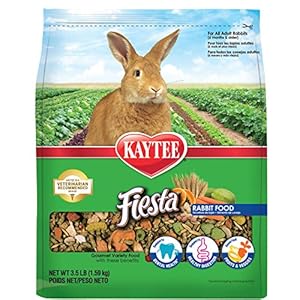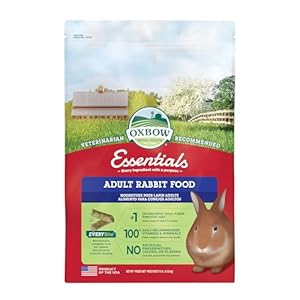
Within the coronary heart of Louisiana, about 100 miles north of Baton Rouge, lies the rain-soaked farm that lured Konda Mason away from California in 2020. Reflecting on her journey to the South, the entrepreneur and non secular trainer has no regrets about relocating from Oakland to the small metropolis of Alexandria to begin rising rice. She chuckles whereas explaining how she obtained there: in an RV with two family members and two canines. However a touch of frustration creeps into her voice when she talks in regards to the climate.
“Proper now, it’s too moist for us to get into the sphere with a tractor,” she defined the evening after a thunderstorm this summer season. “We’ve had only a few days the place we will go into the sphere up to now this 12 months, and that’s problematic.”
Mason is the founding father of Jubilee Justice, a nonprofit that helps small-holder Black farmers within the South develop specialty rice with the System of Rice Intensification (SRI), a “dry-land” methodology developed within the Nineteen Seventies and Eighties. As an alternative of rising rice in flooded paddies to stop weeds from overtaking the crop, SRI farmers deal with rice like a vegetable, irrigating it as wanted and utilizing different weed management strategies.
Created on Madagascar and practiced in about 60 international locations immediately, SRI has been proven to extend grain yields, typically twofold. The tactic additionally tackles the numerous local weather influence of standard rice manufacturing. Methane emissions created by flooded rice paddies account for about 10 percent of world agricultural emissions. That’s as a result of a lot rice is grown around the globe: Roughly 11 p.c of all arable land is dedicated to this crop, a each day staple for half the folks on Earth.
“What we’re doing [at Jubilee Justice] is reclaiming rice and rice farming as our foodways, as our invention, as our birthright—and in that’s nothing however the spirit of the ancestors.”
Per calorie, although, rice produces fewer emissions than most staple meals, together with meat, fish, eggs, dairy, and even different grains like wheat and corn. And rising rice with SRI can cut those emissions nearly in half. (Rice has different points, specifically that it will probably comprise high amounts of arsenic, relying on the range and the place it’s grown; nevertheless, rice grown underneath drier circumstances, like SRI, likely has less arsenic.)
Regardless of all some great benefits of SRI, it’s scarcely practiced within the U.S. as a result of it requires specialised gear, includes much more labor, and is extraordinarily tough to drag off. “That’s why folks assume we’re loopy,” Mason mentioned.
However she has highly effective causes to give attention to rice regardless of the challenges. For Mason, rice represents a option to rework lives and reclaim the previous, providing a path towards racial, financial, and local weather justice.
A Circulation of Information
Jubilee Justice’s rice program, referred to as the Black Farmers Cohort, at the moment consists of 10 farmers from Louisiana, Alabama, Georgia, South Carolina, North Carolina, and Kentucky. Collectively, they domesticate seven completely different varieties, together with the group’s signatures: “Black Pleasure,” “Creole Nation Pink,” “Black Belt Sticky,” and “Jubilee Justice Jasmine.” The staff in Alexandria is testing 20 extra varieties at their 17-acre farm, situated on a former cotton plantation that serves because the central analysis hub for crop and gear trials. Mason notes that information flows out as a lot because it flows in, as a result of everyone seems to be studying.

On the Jubilee Justice farm in Alexandria, Louisiana, rice is farmed with a “dry-land” methodology referred to as System of Rice Intensification (SRI). (Photograph courtesy of Jubilee Justice)
“We’re mainly figuring it out 12 months by 12 months,” defined Erika Styger, director of the Local weather-Resilient Farming Techniques Program at Cornell College. A number one supplier of SRI technical help to small-holder farmers worldwide, Styger has been a Jubilee Justice advisor because the Black Farmers Cohort started in 2019.
Jublilee Justice is the one group within the U.S. “actively implementing and systematically researching the [SRI] methodology organically, regeneratively, and in collaboration with a number of farmers,” she mentioned. Basically, these farmers are the vanguards of a grand Southern experiment—a part of what makes their work so difficult.
SRI can take years to regulate to a single farming operation and microclimate, Styger mentioned, and having farmers round who’ve already executed it efficiently and may share their knowledge minimizes a “tough” and “fragile” studying interval. Being the primary ones to pursue SRI on U.S. soil, Jubilee Justice doesn’t have this selection.
“It takes a number of information and fine-tuning, and it’s essential be able to adapt to completely different conditions,” she added. Styger thinks the rising pains are price it, although: “In the long term, in fact, you’re constructing a much-improved system that can have the ability to face up to local weather change a lot better.”
With SRI, farmers can reduce by half the standard 800 to five,000 liters of water used to develop one kilogram of rice, leading to a 43 p.c discount in methane emissions, based on a brief by Styger and her Cornell colleague Norman Uphoff. Whereas SRI could slightly increase nitrous oxide emissions, Styger and Uphoff discovered its benefits outweigh the potential downsides: SRI has been proven to decrease the worldwide warming potential of rice manufacturing by 25 p.c on common.
Caryl Levine, co-founder of Lotus Foods, a California-based firm specializing in SRI with farmers in Asia and Southeast Asia, says dryland rice farming is gaining recognition as a result of “it’s rather more regenerative” than standard flooding. Nonetheless, it’s taken a long time for the follow to unfold.
Lotus Meals primarily works with farmers abroad, however teamed up with Mason to work on bringing Jubilee Justice rice to market. “It was a long-term purpose of Lotus Meals to work with home farmers who’re prepared to make use of SRI practices,” Levine has said. With as many challenges as successes these previous 4 years, the Black Farmers Cohort has but to fulfill the quantity threshold for Lotus to place their rice on grocery retailer cabinets. Mason stays optimistic, although, saying, “We’re getting there.” In November, her farm in Alexandria achieved a milestone by harvesting its first full acre of rice after three years of smaller trials, marking their greatest harvest but.
Jubilee Justice provides farmers who’re part of the Black Farmers Cohort with every part they should get began with SRI, together with seeds, gear, minerals, fertilizers, labor help, and technical help. Along with funding from small household foundations, the group obtained a $500,000 grant from the MacArthur Basis in 2021.
Trending Merchandise










